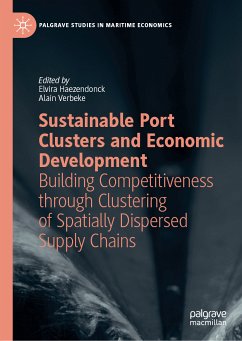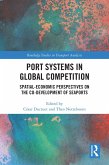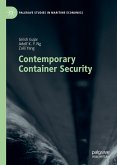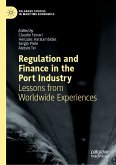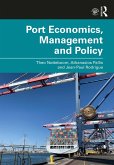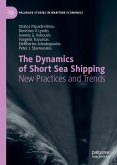This book belongs to the Port Economics and Global Supply Chain Management strand of the Palgrave Studies in Maritime Economics book series, commissioned by Hercules Haralambides.
Chapter 4 is available open access under a Creative Commons Attribution 4.0 International License via link.springer.com.
Dieser Download kann aus rechtlichen Gründen nur mit Rechnungsadresse in A, B, BG, CY, CZ, D, DK, EW, E, FIN, F, GR, HR, H, IRL, I, LT, L, LR, M, NL, PL, P, R, S, SLO, SK ausgeliefert werden.
"The book is both extensive and unique in examining the spatial and activity scope of port collaboration, but its focus remains on the Benelux region within Northwest Europe. ... This book should therefore be seen as a solid and inspiring building block for a broader scope analysis of port collaboration, as opposed to being the definitive work on the subject matter." (Michaël Dooms, Maritime Economics & Logistics, Vol. 22, 2020)
Es gelten unsere Allgemeinen Geschäftsbedingungen: www.buecher.de/agb
Impressum
www.buecher.de ist ein Internetauftritt der buecher.de internetstores GmbH
Geschäftsführung: Monica Sawhney | Roland Kölbl | Günter Hilger
Sitz der Gesellschaft: Batheyer Straße 115 - 117, 58099 Hagen
Postanschrift: Bürgermeister-Wegele-Str. 12, 86167 Augsburg
Amtsgericht Hagen HRB 13257
Steuernummer: 321/5800/1497
USt-IdNr: DE450055826
Bitte wählen Sie Ihr Anliegen aus.
Rechnungen
Retourenschein anfordern
Bestellstatus
Storno

